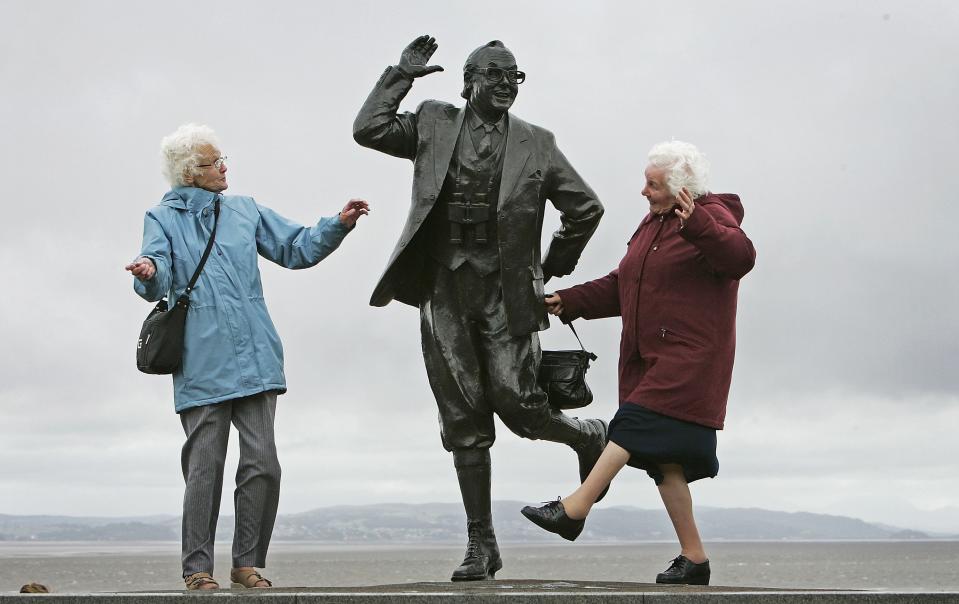What this week's Budget could mean for your pension

Many in the pensions industry would be grateful if chancellor Philip Hammond did not mention the word ‘pension’ at all in tomorrow’s Budget.
The sector has been left reeling from successive cuts to pension tax relief – the amount of money the taxman gives you back for saving into a pension.
There has been speculation that Hammond could once again target this area as a way of appealing to younger voters.
MORE: Budget predictions: what’s at stake for pensions, savings, house purchases and tax?
It’s generally accepted that the relief benefits older, wealthier workers.
With younger people struggling with fairly static wage growth, higher inflation, a housing market that’s out of reach for many, giving them a break on pensions could appeal.
However, former Coalition government minister Steve Webb, now director of policy at financial services mutual Royal London, said: “With six different cuts to pension tax relief in the last six years, a period of stability would be most welcome.
“Although there are plenty of things wrong with the system and unnecessary complexities, such as the tapered annual allowance, new changes would create new complexities, which would be most unwelcome.”
Genevieve Moore, head of corporate tax, at accountants Blick Rothenberg, added that the raft of changes had left managers of private companies “bemused”.
She said: “It seems saving for retirement is being punished rather than encouraged and supported. In addition, the number of current rules is confusing and could lead to inadvertent tax charges.”
Moore said Wednesday’s Budget could be used to introduce a flat rate of tax relief on pension contributions and remove the current £40,000 per annum limit (or £10,000 for those earning £210,000 a year or more).

Another area the chancellor might choose to look at is socially responsible investing.
It has been mooted Hammond could compel defined contribution pension schemes to invest part of their pots ethically – as they are in France – into socially responsible causes.
MORE: Millions of British workers are sitting on a six-figure pension lump sum without realising it
Again, many see this a way to appeal to younger voters who perhaps view pension fund managers as only interested in making money, wherever is expedient and generating the highest returns.
“We’re trying to persuade the government to give wider variety of choice in default pension funds to include green and socially responsible investing,” said Nigel Wilson, the chief executive of Legal & General.
Royal London’s Steve Webb added: “I’ve also heard rumours about socially responsible investing, and I’m sure the government is interested in this agenda, though I think we are a long way from firm proposals and even further away from mandatory SRI.
“I suspect the most we might get is the announcement of a plan to consult on how to take things further.”

One key vote-winner that will be left alone, the industry believes, is the triple-lock state pension.
After Theresa May hinted earlier in the year she was keen to scrap it, there was an outcry.
The triple lock guarantees that the basic state pension will rise each year by a minimum of either 2.5%, the rate of inflation, or average earnings growth – whichever is largest.
June’s general election saw the Tories pledge it would remain until at least 2020. With inflation hitting 3% in September, the chancellor is set to announce announce a 3% rise in the state pension, the biggest since 2012.
MORE: 5 million gig economy workers ‘missing out on £100,000 pension pot’
This would see the basic state pension go up from £122.30 to £125.97 a week, while the new state pension (if you have a full NI contributions record) will rise from £159.55 to £164.34.
Lee Hamilton, tax partner, at Blick Rothenberg, added: “What people are really looking for is stability, people need to plan ahead and any changes that impact that middle group of people, not classed as young, not close to retirement, would be detrimental.
“If it were to be part of an overall strategic shift, then it would need to be something wholesale, that is long-lasting, rather than tinkering round with the annual allowance – any drive on that front would be counterproductive.”

